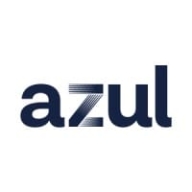

Azul Zing and Azul Zulu are competing in the Java runtime products category. Azul Zing appears to have the upper hand in performance for high-demand applications, while Azul Zulu offers an advantage in cost-effectiveness and flexibility due to its open-source nature.
Features: Azul Zing has advanced capabilities suitable for high-performance tasks. It includes pauseless garbage collection, making it ideal for low-latency environments. Additional features such as JVM enhancements improve execution efficiency in performance-sensitive applications. Azul Zulu offers essential Java features with its production-ready vanilla JDK. It provides broad cross-platform support, enhancing deployment in diverse environments. Furthermore, Zulu delivers scalable and robust functionalities for enterprises.
Ease of Deployment and Customer Service: Azul Zulu allows for simple deployment with wide compatibility as an open-source distribution, facilitating seamless integration. Its customer service benefits from extensive documentation and strong community support. Azul Zing offers dedicated enterprise-grade support and optimization, aiming to improve reliability and performance for demanding environments. It requires tailored expertise for deployment but supports enhanced system efficiency through its personalized assistance.
Pricing and ROI: Azul Zing involves a higher initial expense with the potential for high ROI through improved performance and operational efficiency. It serves enterprises with specific requirements, justifying the setup cost. Azul Zulu offers a cost-effective solution available under open-source licensing, making it affordable for budget-conscious enterprises. It permits production-level Java development without excessive financial commitments, ensuring budget constraints do not limit development initiatives.
| Product | Market Share (%) |
|---|---|
| Azul Zulu | 3.9% |
| Azul Zing | 3.4% |
| Other | 92.7% |
| Company Size | Count |
|---|---|
| Small Business | 4 |
| Midsize Enterprise | 4 |
| Large Enterprise | 2 |
Zing is an advanced Java runtime (JVM) designed for enterprise workloads that require any combination of large memory, high transaction rates, low latency, consistent response times or high sustained throughput. Zing eliminates Java garbage collection as a factor in production, and conforms to the Java SE standard for Java SE 8, 7, and 6.
Zulu is a 100% open source certified build of OpenJDK, running on Linux, Windows, and OS X. Zulu complies with the Java SE standard for Java SE 8, 7, and 6. Free to download and use, Zulu is available on Azure, AWS, Canonical’s Charm Store and the Docker hub. Zulu Enterprise subscriptions deliver 24 x 7 x 365 access to Azul’s Support team.
We monitor all Application Infrastructure reviews to prevent fraudulent reviews and keep review quality high. We do not post reviews by company employees or direct competitors. We validate each review for authenticity via cross-reference with LinkedIn, and personal follow-up with the reviewer when necessary.